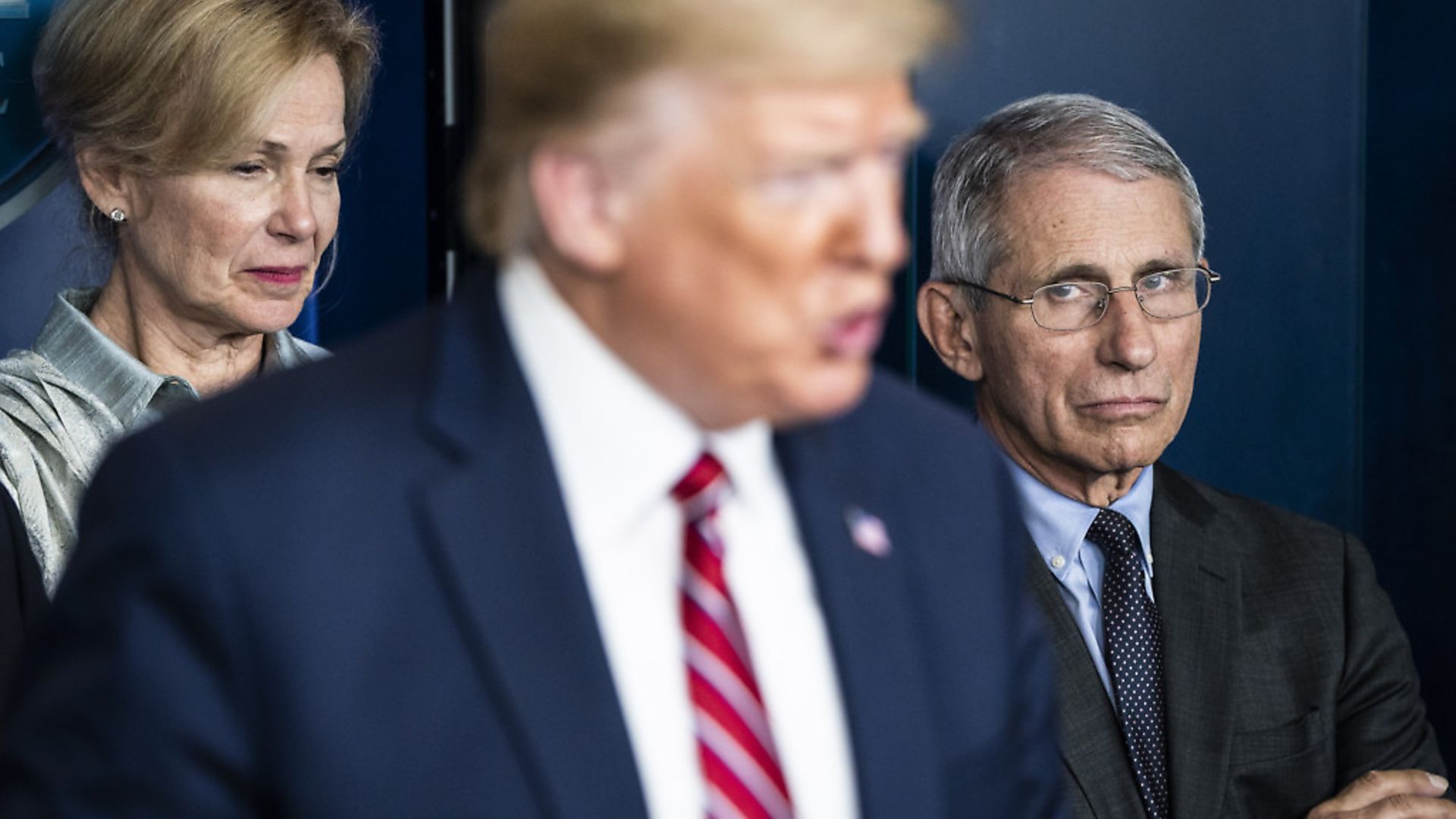
STEVE ANGLESEY on the theories spreading as fast as the virus
As the author of The Day of the Jackal and The Odessa File, Frederick Forsyth deals in elaborate yarns. Last month, readers of his Daily Express column were treated to the latest.
The 81-year-old wrote: ‘Without any official announcement the word seems to be spreading – faster than the virus. Even my local postman wished to tell me about it.
‘Apparently the coronavirus did not start in a live-meat market, disgusting though they are. It seems an official Chinese laboratory in Wuhan was trying to devise an all-purpose vaccine. To give it something to work against, they needed a new toxin.
‘They didn’t crack the vaccine but managed to come up with Covid-19. Then a dozen lab staff caught it and the unit was sealed.
‘But one technician escaped and began to spread the malady all over the city. The meat-market story was invented to divert blame.’
The tale has many of the hallmarks of a Forsyth thriller – the secretive government, shadowy organisation, the covert mission, the deadly mistake, the daring breakout, the well-orchestrated cover-up. Like a Forsyth thriller, it is also a work of fiction, and therefore its correct place is within the pages of an airport paperback rather than those of a supposed newspaper of record (admittedly one with knowledgeable and well-placed sources inside Britain’s postal service).
The old postie’s tale is, in fact, a conflation of old and new myths. The claim that AIDS was created in a CIA bioweapons laboratory dates back to 1986 and a phoney ‘research paper’ produced at a summit in Zimbabwe; more recently the misuse of a short story first posted on the website Reddit has led people to believe that a ‘senior Chinese military intelligence officer’ confessed to creating the virus in order to subdue young protestors in Hong Kong before things went badly awry. ‘We wanted the population of Hong Kong to submit to us; we did not want to exterminate it,’ the repentant spymaster laments during a stirring mea culpa which features a top-secret plan to sell the bioweapon to the USA, its subsequent theft from the lab by concerned Chinese scientists and a climactic shoot-out in the city of Wuhan which ultimately leads to the deadly strain being released by accident.
Like Forsyth’s novels, these unlikely stories carry an air of plausibility by taking established reality (as per The Day of the Jackal, where there really was a right-wing plot to assassinate Charles de Gaulle) and adding a fabricated layer on top. They also play into our willingness to believe in conspiracy theories, which is based both on our advanced intelligence and our simplistic need to make sense of a complex world.
On the former, Goldsmiths psychology professor Chris French told the BBC last year: ‘We are very good at recognising patterns and regularities. But sometimes we overplay that – we think we see meaning and significance when it isn’t really there. We also assume that when something happens, it happens because someone or something made it happen for a reason.’
On the latter, Cambridge social psychologist Sander van der Linden told Psychology Today: ‘Many of us are uncomfortable with the notion of randomness, because it lacks meaning. The only thing it communicates to people is uncertainty and a lack of agency and control over what is happening in the world.
‘It is easier, and much more comforting, to simply point our finger at someone. Conspiracy theories, therefore, serve an important role – they restore a false sense of certainty and control.’
Thus some people will continue to believe that coronavirus originated from last November’s 5G switch-on in China (sub-6 GHz radio signals have been used around the world for years, so symptoms would have emerged sooner) or that it was created and patented in England in 2015 (the term coronavirus is a catch-all for a group of viruses; the patent in question covers a potential vaccine for avian coronavirus, which affects only birds).
The conspiracies will continue to spread across social media thanks to the likes of Forsyth and the Express, rapper Cardi B (who implied that celebrities including Idris Elba might be being paid to say they had tested positive as part of an awareness campaign) and comedy actor Cedric the Entertainer, who reposted a video claiming Bill Gates ‘either predicted or planned the coronavirus outbreak’.
It barely helps that one of the biggest celebrities of all on social, with 75.5 million Twitter followers, spent the first weeks of the pandemic propagating myths like the idea that ‘during the month of April, the heat generally kills this kind of virus’ or that the outbreak is ‘very mild’ and that the infected could recover by ‘going to work’, or that it can be treated with antimalarial drugs.
It helps even less that this now repentant conspirator-in-chief was the president of the United States, Donald Trump.
He may have changed his tune because, as Syracuse University assistant professor Whitney Phillips told the New York Times this week, ‘What this case will show is that conspiracy theories can kill.’










